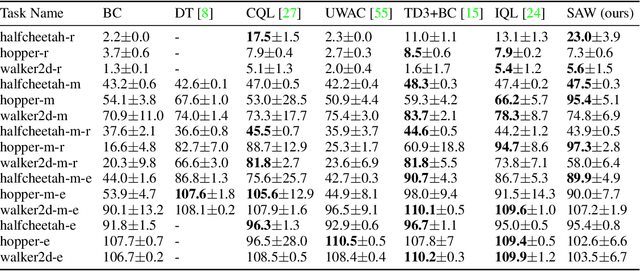Aicheng Gong
A Two-stage Reinforcement Learning-based Approach for Multi-entity Task Allocation
Jun 29, 2024



Abstract:Task allocation is a key combinatorial optimization problem, crucial for modern applications such as multi-robot cooperation and resource scheduling. Decision makers must allocate entities to tasks reasonably across different scenarios. However, traditional methods assume static attributes and numbers of tasks and entities, often relying on dynamic programming and heuristic algorithms for solutions. In reality, task allocation resembles Markov decision processes, with dynamically changing task and entity attributes. Thus, algorithms must dynamically allocate tasks based on their states. To address this issue, we propose a two-stage task allocation algorithm based on similarity, utilizing reinforcement learning to learn allocation strategies. The proposed pre-assign strategy allows entities to preselect appropriate tasks, effectively avoiding local optima and thereby better finding the optimal allocation. We also introduce an attention mechanism and a hyperparameter network structure to adapt to the changing number and attributes of entities and tasks, enabling our network structure to generalize to new tasks. Experimental results across multiple environments demonstrate that our algorithm effectively addresses the challenges of dynamic task allocation in practical applications. Compared to heuristic algorithms like genetic algorithms, our reinforcement learning approach better solves dynamic allocation problems and achieves zero-shot generalization to new tasks with good performance. The code is available at https://github.com/yk7333/TaskAllocation.
State Advantage Weighting for Offline RL
Oct 09, 2022



Abstract:We present state advantage weighting for offline reinforcement learning (RL). In contrast to action advantage $A(s,a)$ that we commonly adopt in QSA learning, we leverage state advantage $A(s,s^\prime)$ and QSS learning for offline RL, hence decoupling the action from values. We expect the agent can get to the high-reward state and the action is determined by how the agent can get to that corresponding state. Experiments on D4RL datasets show that our proposed method can achieve remarkable performance against the common baselines. Furthermore, our method shows good generalization capability when transferring from offline to online.
 Add to Chrome
Add to Chrome Add to Firefox
Add to Firefox Add to Edge
Add to Edge